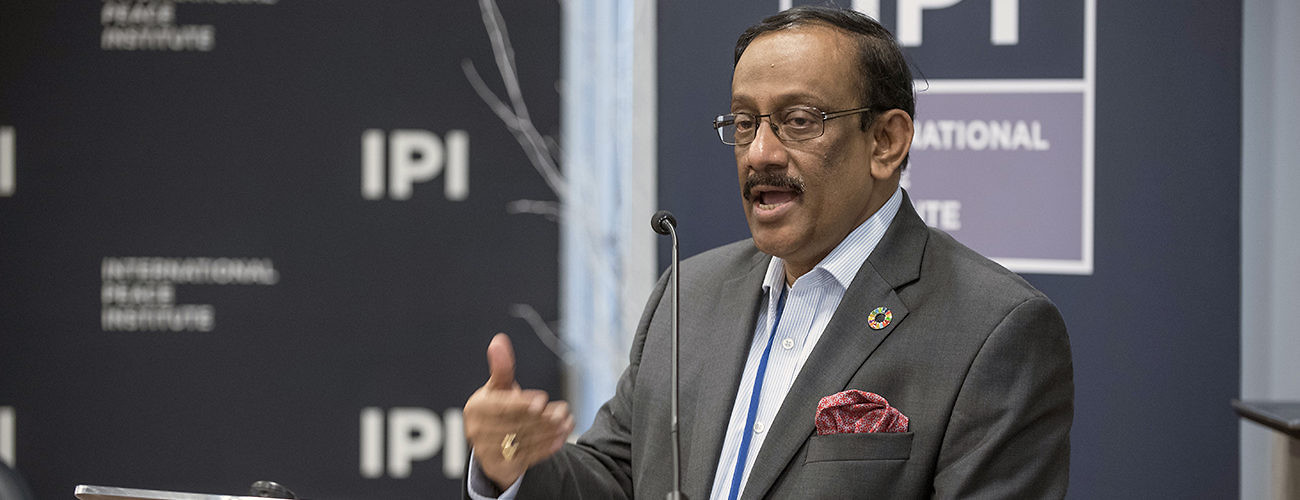Shahidul Haque, the Foreign Secretary of Bangladesh, told an IPI audience on February 15th that his government was committed to accommodating the 1.1 million Rohingya people who had fled Myanmar and crossed into Bangladesh but that the overwhelming numbers of the refugees and the speed with which they were arriving had presented Bangladesh with “formidable challenges.”
“We have never been through such a situation,” he said. “One million Rohingyas crossed over to Bangladesh within a very short period of two months.”
He cited the fact that Bangladesh had opened its borders to the Rohingyas in August, 2017 and had been receiving them ever since in such numbers that they now outnumbered the residents of the communities in which they were encamped. “The Rohingyas are concentrated in two sub-districts, and in both of those sub-districts, there are more Rohingyas than local people so local people overnight have become a minority,” he said. “The schools have been closed since all the schools have been taken over by the Rohingyas.”
Among the statistics he enumerated were that 58% of the Rohingya refugee population were children, 30,000 were pregnant women, and more than 40,000 were orphans. He also mentioned that Bangladesh had allocated 4,707 acres of land, including forest area. “They literally took over the forest land,” he said. “If you go now, you will see not a single tree standing. This is an environmental shock for us.”
There is a looming crisis at the moment, he said, because of the onset in the spring of monsoons and cyclones and the floods and landslides they produce. This creates an emergency need for reinforced shelters, mud stabilization and relocation of vulnerable populations away from the lowlands. To address that and facilitate access for assistance, he explained, the Bangladeshi military is currently building new roads, for which they have to clear forest, a step that can be taken only with the permission of the cabinet.
For the government of Bangladesh, the Rohingya crisis has been “multidimensional and multi-layered,” he said, causing not only economic and political problems but also raising security, border and human rights concerns “despite the fact that there is no conflict between Bangladesh and Myanmar.” He described his policy as “a mix of bilateral and multilateral,” with assistance from the United Nations High Commission for Refugees (UNHCR).
“From Bangladesh’s side, we strongly argued that there has to be engagement of UNHCR or any other agency that Myanmar thinks is acceptable to them in a tripartite final agreement,” he said. He observed that a formal memorandum of understanding between Bangladesh and UNHCR was nearing completion, but ultimately, he added, there will have to be involvement with not just the UN but with the larger international community.
He noted that Bangladesh’s Prime Minister, Sheikh Hasina, told the General Assembly in September that there was a need for “safe zones” for the Rohingya, who had fled Myanmar after being subjected to atrocities. “The atrocities have to stop,” he said. “These people cannot be forgotten.”
Asked about points of bilateral dialogue and how pressure could be put on Myanmar to help end the crisis, Mr. Haque answered, “We think the only way the Myanmar government will understand the gravity of the situation is when they hear it from the international community. That is the only opening we have, and it cannot be purely bilateral. It is the responsibility of the international community to seek justice for the Rohingyas.”
IPI Vice President Adam Lupel moderated the discussion.








